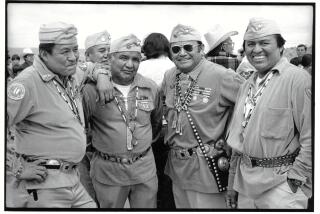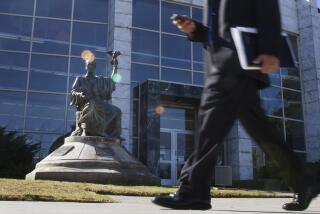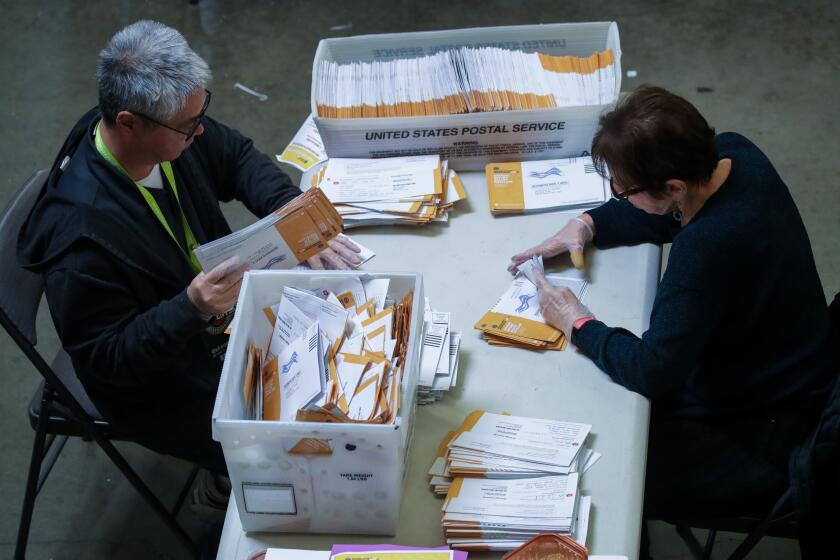The truth about WWII internment
In one sense, the U.S. solicitor general’s recent admission of his office’s wrongdoing wasn’t really news. After all, commissions courts and investigators long ago established that various government agencies and officials fudged or withheld facts during World War II in order to sweep all people of Japanese descent — American-born citizens as well as immigrants — out of California and parts of three other Western states.
Congress, the president, state and local officials and the military rode a wave of war hysteria to support the politically popular but blatantly un-American evacuation and confinement of more than 100,000 Japanese Americans. When lawsuits challenging the action reached the Supreme Court, the government’s lawyers in the solicitor general’s office suppressed crucial information that could have debunked the racism-fueled assertion that all people of Japanese blood posed a danger to U.S. security, or that it would never be possible to distinguish the loyal residents from the traitorous ones.
But even though the government’s actions have been well documented, there is real value in the acknowledgment earlier this month by acting Solicitor General Neal Katyal that his war-era predecessor, Charles Fahy, was wrong to have withheld that information from the high court.
“The Ringle report, from the Office of Naval Intelligence, found that only a small percentage of Japanese Americans posed a potential security threat, and that the most dangerous were already known or in custody,” Katyal said. “But the solicitor general did not inform the court of the report, despite warnings… that failing to alert the court ‘might approximate the suppression of evidence.’ ”
Acting on incomplete data, the court notoriously upheld orders imposing a curfew on, and then a forced evacuation of, residents solely because of their ethnic heritage.
Even after Congress apologized to internees and President Reagan signed a reparations bill in 1988, the solicitor general’s office failed to own up to its misconduct. By that time, Fahy’s role had become widely known. Katyal’s acknowledgment finally, officially sets the record straight.
It matters. Even a great democracy with a firm commitment to protecting human rights can succumb to prejudice and fear in times of danger. When government officials charged with presenting the truth intentionally shirk their responsibility, the values that make the United States exceptional are endangered, not just once but over and over again. As the U.S. commission that recommended reparations noted in 1982: “Our nation’s ability to honor democratic values even in times of stress depends largely upon our collective memory of lapses in our constitutional commitment to liberty and due process. Nations that forget or ignore injustices are more likely to repeat them.”
More to Read
A cure for the common opinion
Get thought-provoking perspectives with our weekly newsletter.
You may occasionally receive promotional content from the Los Angeles Times.






